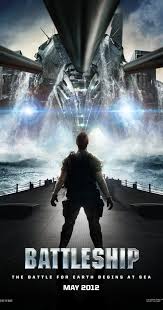battleship
英 [ˈbæt.əl.ʃɪp]
美 [ˈbæt̬.əl.ʃɪp]
- n. (美)战舰
使用频率:

记忆方法
记忆“battleship”这个单词,可以采用“联想记忆法”,将单词分解为“battle”和“ship”。联想一个场景,想象一艘“ship”(船)正在“battle”(战斗)中,或者是一艘在战斗中显得强大的“battleship”(战舰)。通过这样的场景联想,可以加深对“battleship”这一单词的记忆。
以上内容由AI生成, 仅供参考和借鉴
英语词源
- battleship (n.)
- 1794, shortened from line-of-battle ship (1705), one large enough to take part in a main attack (formerly one of 74-plus guns); from battle (n.) + ship (n.). Later in U.S. Navy in reference to a class of ships that carried guns of the largest size. The last was decommissioned in 2006. Battleship-gray as a color is attested from 1916. Fighter and bomber airplanes in World War I newspaper articles were sometimes called battleplanes, but it did not catch on.
权威例句
- 1. The little boy enjoys making battleship models.
- 这个小男孩喜欢做战舰模型.
- 2. A new battleship was launched from a shipyard.
- 一艘新战舰从船坞下水.
- 3. They moved two destroyers into the area to counter the threat from the enemy battleship.
- 他们开了两艘驱逐舰进入这个地区,来反击敌人战舰的威胁.
- 4. A British battleship, which had been damaged severely in the battle of Crete, came limping into Pearl Harbor.
- 一艘在克里特岛战役中严重受损的英国战舰艰难缓慢地驶进珍珠港。
- 5. Later air reconnaissance showed that the battleship was heavily damaged.
- 事后,空中侦察表明,该战列舰受伤颇重.